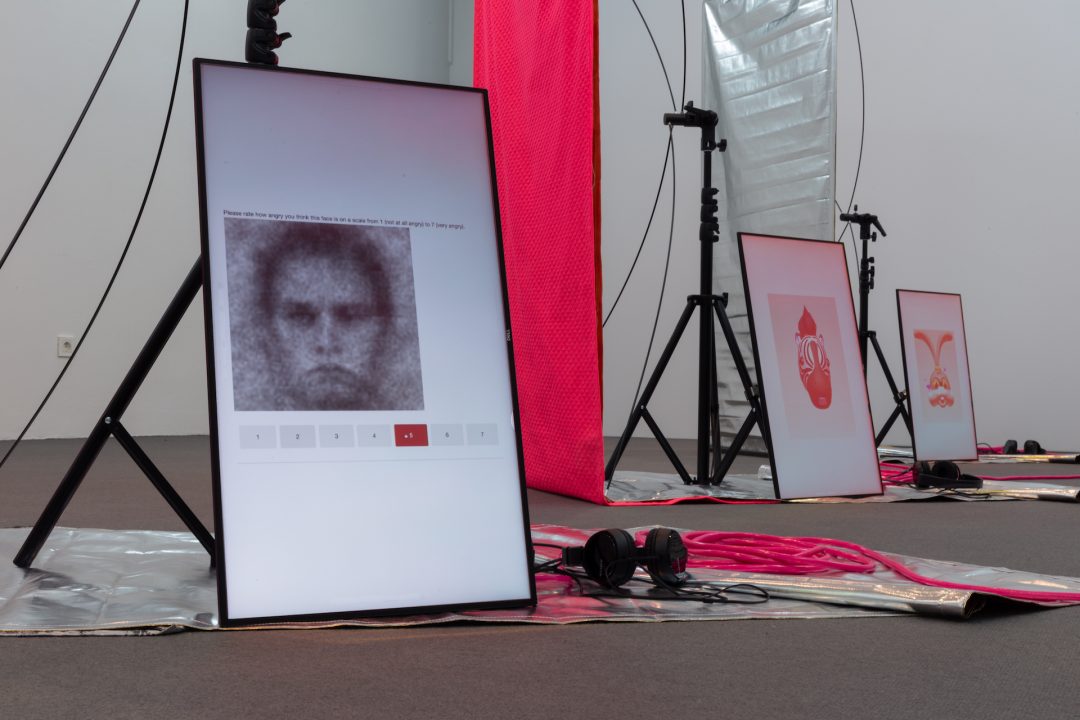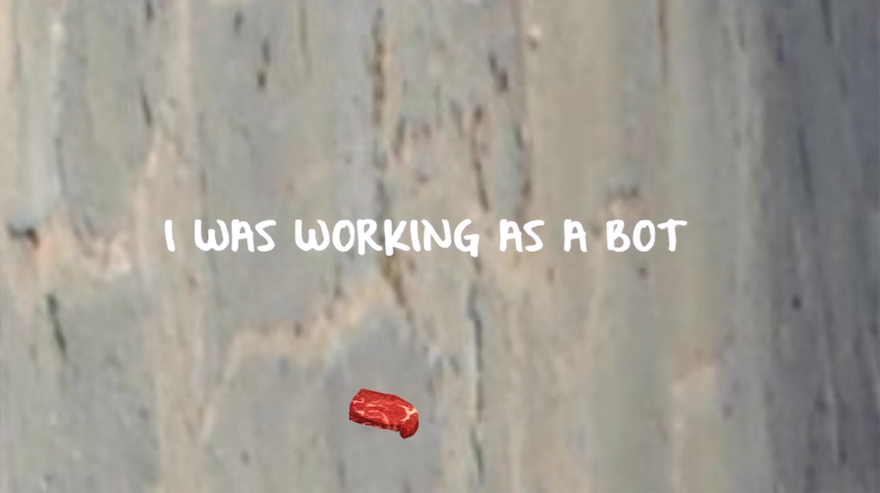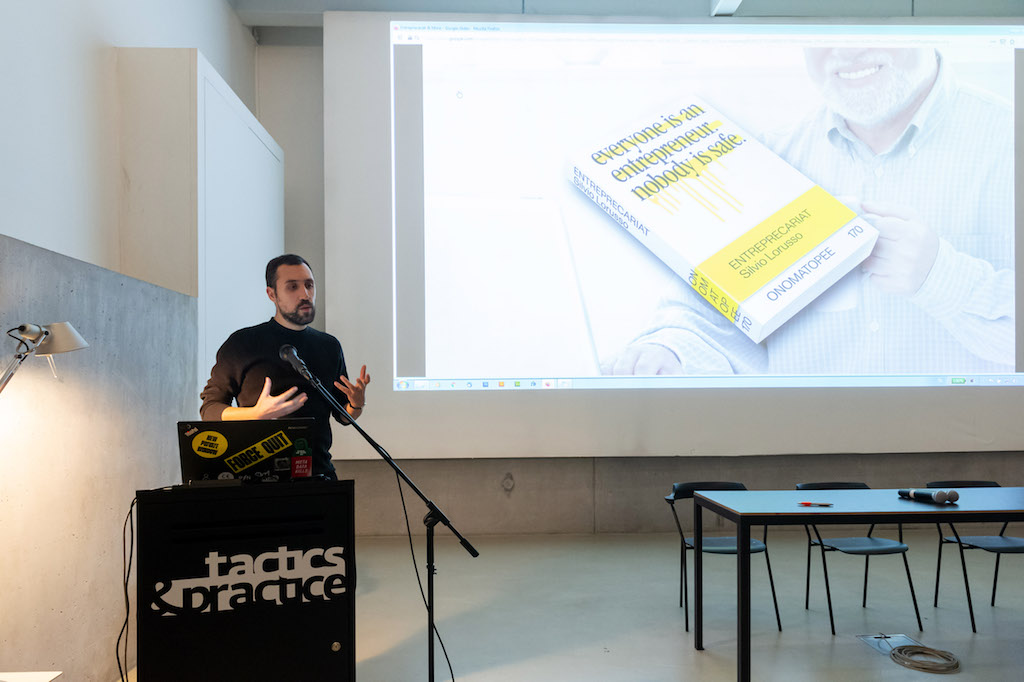Automate All The Things!

Moderna Galerija / Academy of Fine Arts and Design, Ljubljana,14.01—15.01.2020
At the end of 2006, when everyone was starting to benefit from their 15 minutes of pixelated celebrity with the advent of the social network that we know, another platform was making a place for itself on another market, not that of hyper-individualization but, on the contrary, of the invisibilization of individuals, turning them into a crowd of anonymous dogsbodies exploited at will: Amazon Mechanical Turk. This “global, on-demand, 24×7 workforce,” as the website of the giant of the neo-gig economy1proclaims, is conceived as an actualization of the deception that was already simulating artificial intelligence in 1770,the famous Mechanical Turk who amazed the European elite by surpassing them in chess. Two and a half centuries later, artificial intelligence is still artificial and humans are still in the machine.Total automation remains a trick, so what has changed?It is around this question of humans “as invisible slaves of the machines” that curators Domenico Quaranta and Janez Janša brought together a panel of artist-researchers for an exciting symposium in mid-January, as part of the the year-long Hyperemployment programme they are organising for Aksioma, the ultra-dynamic project space in Ljubljana.

Crowdsourcing, the term coined in 2005 to designate in particular ultra-division coupled with distribution of work into micro-tasks, is perfectly explicit, as Domenico Quaranta reminds us in his inaugural lecture: “unlike the multitude described by the philosopher Toni Negri as a group of individuals, the term crowd better describes the sum of online workers whose individuality is hidden behind the platform that connects them to the requesters”. Not only is the individuality of the worker concealed, but the identity of the client is also concealed, not to mention the bigger task to which the micro-taskers contribute. In short, no one really knows who works for whom, let alone why. This is what the Sicilian artist Elisa Giardina Papa experienced in the creation of her latest work, Cleaning Emotional Data (2020), the last chapter of her trilogy devoted to exploring the relationship between the world of work and the technologized universe and what logically escapes them: care, sleep and emotions.Narrating here her months of working remotely for data-cleaning companies, she details the various tasks she had to perform, explaining, once again, the total lack of information about the client and the purpose of her missions. Having mainly annotated facial expressions and added her own to databases, she points out the influence of nineteenth-century physiognomy theories—the idea, dating back to Antiquity, of a relationship between a person’s physical appearance and psychological character—on “cutting-edge” technologies such as the production of facemoji—the real-time emoji of a user’s face. While there is indeed an incomputability of human emotions, the most far-fetched attempts at analyzing them are nevertheless legion, as Sebastian Schmieg recalls, referring to the famous study that made the headlines in the summer of 2016, linking a quantification of the use of Instagram filters to the mood of their users: “Instagramming In Black And White? Could Be You’re Depressed”wrote NPR or “Your Instagram feed could tell us if you’re depressed, study suggests” was to be read in the no less serious Washington Post.

In the form of a performed fiction, I Will Say Whatever You Want In Front Of A Pizza (2017)4, the intervention of the young German proves to be emotionally charged, telling a love story between two task workers while at the same time exposing the artist’s analysis of the situation of these humans as software extensions.
As for Silvio Lorusso, who took the opportunity to present the English version of his must-have book bearing the wonderful portmanteau title Entreprecariat, he linked with confounding ease the increasingly aggressive productivity imperative, illustrated by browser extensions such as StayFocusd, to the irreplaceable Ne travaillez jamais by Debord, each imperative having been considered, at the time of its appearance, as superfluous.

1 It is undoubtedly interesting to recall that the gig economy is by no means a new idea, but rather the return to the functioning of work before the creation of salaried employment and open-ended employment contracts.
2 Elisa Giardina Papa, Sanela Jahić, Silvio Lorusso, Michael Mandiberg, Domenico Quaranta, Sašo Sedlaček and Sebastian Schmieg.
3 Domenico Quaranta, “Portraying the Invisible Crowd”, Ljubljana Academy of Art and Design, 14 January 2020. https://vimeo.com/387746104
4 http://i-will-say-whatever-you-want-in-front-of-a.pizza/
5 Silvio Lorusso, Entreprecariat, Onomatopee, 2019.
Image on top: Elisa Giardina Papa during Automate All The Things!, 2020. Photo : Domen Pal / Aksioma.
- From the issue: 93
- Share: ,
- By the same author: Andrej Škufca, LIAF 2019, Transnationalisms, Signals, LIAF-2017,
Related articles
Petticoat Government
by Juliette Belleret
Paul Thek at MAMCO, Geneva
by Alain Berland
Apolonia Apolonia
by Benjamin Cataliotti

